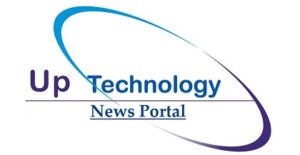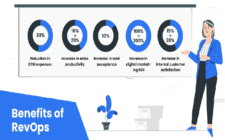In the competitive landscape of modern business, access to timely and accurate market information is crucial. Organizations must understand customer preferences, track emerging trends, and assess competitor strategies to stay ahead. Traditional market research methods, while valuable, often require significant resources, time, and logistical planning. To address these challenges, many companies are turning to a research marketplace to streamline data collection and gain actionable insights efficiently.
For decades, market research involved hiring specialized agencies or relying on in-house teams to design surveys, recruit participants, and analyze responses. While effective, these methods often faced limitations such as restricted participant pools, slow turnaround times, and high costs. In an era where decisions must be made quickly, businesses needed a more agile solution that could deliver insights without the delays and inefficiencies of traditional research.
A research marketplace provides exactly that by connecting companies with a global network of respondents and research providers. This platform enables businesses to launch surveys, target specific demographics, and gather high-quality data in real time. By using a research marketplace, organizations can access actionable insights more efficiently, making data-driven decisions faster and with greater confidence than ever before.
One of the key benefits of a research marketplace is its scalability. Whether a business is running a small-scale survey to test a new product concept or conducting a large-scale study to explore market trends, the platform can accommodate projects of any size. Companies can customize survey parameters, participant criteria, and data collection methods to ensure the insights are relevant and actionable. This flexibility makes research marketplaces ideal for organizations of all sizes and industries.
Speed is another major advantage. In today’s fast-moving markets, the ability to obtain and act on insights quickly can determine a company’s success. Research marketplaces allow businesses to collect responses in real time, enabling rapid adjustments to marketing campaigns, product development strategies, and customer engagement initiatives. The agility offered by these platforms ensures that companies can respond promptly to shifting consumer needs and market conditions.
Diversity is also a significant benefit of research marketplaces. Platforms provide access to a wide range of participants across different regions, industries, and demographics. This diversity ensures that the data collected is representative and unbiased, providing a more accurate reflection of consumer behavior. By understanding these variations, businesses can create products, services, and campaigns that resonate with their target audiences.
Technology integration further enhances the value of a research marketplace. Many platforms include dashboards, automated reports, and data visualization tools that simplify the interpretation of complex datasets. Businesses can quickly identify trends, spot opportunities, and uncover actionable insights without extensive manual analysis. This technology-driven approach not only saves time but also improves the accuracy and reliability of the findings.
Cost efficiency is another key advantage. Traditional market research can be expensive, often requiring significant investment in recruitment, administration, and analysis. Research marketplaces offer a more cost-effective solution, making high-quality insights accessible even to smaller organizations with limited budgets. By reducing overheads while maintaining data integrity, these platforms democratize access to market intelligence for businesses of all sizes.
Security and compliance are essential considerations in modern research. Reputable research marketplaces adhere to strict data privacy regulations and ethical standards, ensuring that participant information is protected and research practices are responsible. This commitment to security builds trust with both respondents and businesses, creating a reliable environment for gathering and analyzing data.
In conclusion, a research marketplace is transforming the way businesses approach market research. By combining speed, scalability, diversity, and advanced analytics, these platforms empower companies to make smarter, faster, and more informed decisions. In a rapidly evolving market landscape, leveraging a research marketplace is not just an advantage—it is a necessity for organizations seeking sustainable growth and competitive success.
Whether the goal is to test new ideas, understand customer sentiment, or monitor market trends, integrating a research marketplace into a business strategy provides access to insights that drive informed decision-making. By embracing this innovative approach, companies can streamline research processes, reduce costs, and gain the actionable intelligence needed to thrive in today’s data-driven world.




